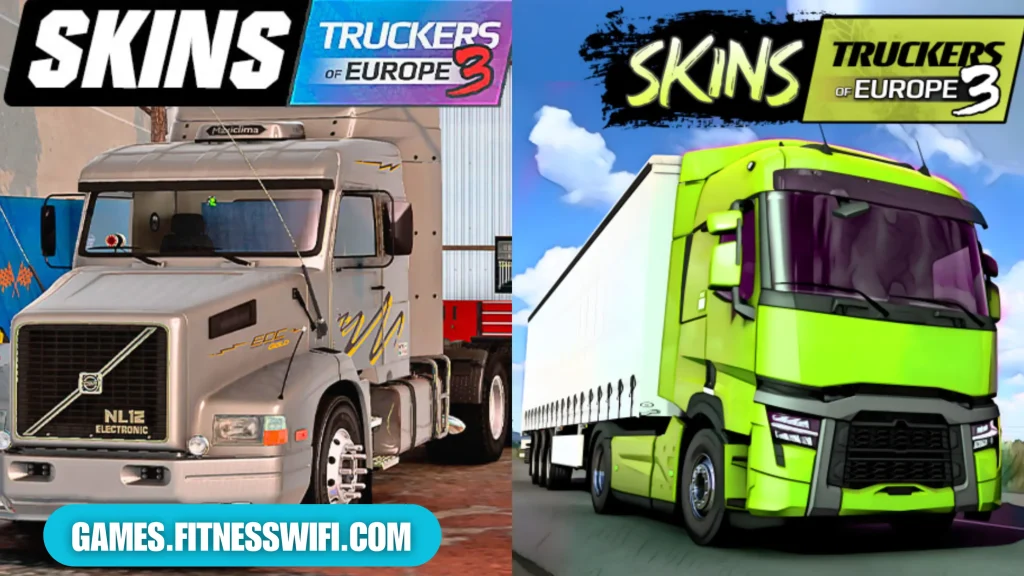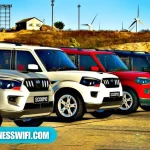Truckers of Europe 3: The European trucking industry stands as a vital pillar supporting the continent’s economy. From delivering essential goods to facilitating trade across borders, truckers play an indispensable role in ensuring the smooth operation of logistics networks.
As we delve into the world of European truckers and their evolving landscape, it’s essential to appreciate the sheer significance of this industry. This post aims to provide a comprehensive overview of the industry, its evolution, and future prospects, offering valuable insights for European truckers, logistics professionals, and road transport enthusiasts.
The Evolution of European Trucking – A Historical Perspective
The history of trucking in Europe is a testament to resilience and innovation. Initially, trucking was a rudimentary endeavor, involving basic vehicles traversing less-developed infrastructure. Over the decades, the industry has undergone significant transformations. The development of better road networks, the advent of more sophisticated vehicles, and the establishment of regulatory frameworks have all contributed to the industry’s growth.
Technological Advancements and Regulatory Changes
The introduction of technology has been a game-changer for the trucking industry. Innovations such as GPS systems, telematics, and advanced driver-assistance systems (ADAS) have revolutionized how truckers navigate and manage their journeys. Moreover, regulatory changes, such as the EU’s stringent emissions standards and hours-of-service regulations, have ensured that the industry operates more efficiently and sustainably.
Insights from European Truckers – Daily Routines and Challenges
To gain a deeper understanding of the trucking world in Europe, we spoke with several seasoned truckers. Their daily routines often start early, with meticulous checks on their vehicles to ensure everything is in working order. Long hours on the road, border checks, and varying road conditions are part and parcel of their work. Despite these challenges, the truckers we interviewed expressed a strong sense of pride in their profession.
| New Update Info | View Update |
| Latest Update | Link |
The Future of the Industry
Looking ahead, these truckers are optimistic yet cautious. They foresee significant changes driven by technology and environmental regulations. However, they also emphasize the importance of maintaining a human touch in an increasingly automated world. The camaraderie among truckers and the shared experiences on the road are invaluable aspects of their profession that they hope will endure.
The Environmental Impact of European Trucking
Carbon Footprint Analysis
The trucking industry is often scrutinized for its environmental impact, particularly its carbon footprint.
Heavy-duty trucks contribute significantly to greenhouse gas emissions, prompting the need for greener alternatives. Recent data indicate that transportation accounts for nearly 30% of the EU’s total CO2 emissions, with a substantial portion arising from road freight.
Greener Logistics Initiatives
In response, the industry is witnessing a surge in initiatives aimed at reducing its environmental impact. The adoption of electric trucks, investment in hydrogen fuel cell technology, and the implementation of eco-friendly driving practices are some measures being taken. Additionally, the European Green Deal aims to cut transport emissions by 90% by 2050, underscoring the region’s commitment to a sustainable future.
Best Practices and Innovations in European Trucking
Efficiency is the cornerstone of successful trucking operations. Employing route optimization software helps truckers plan the most efficient paths, saving fuel and time. Technologies like telematics provide real-time data on vehicle performance, enabling proactive maintenance and reducing downtime.
Safety Measures
Safety remains a top priority in the trucking industry. Advanced safety features such as collision avoidance systems, lane departure warnings, and adaptive cruise control have become standard in modern trucks. Additionally, ongoing training programs ensure that truckers are well-versed in the latest safety protocols and best practices.

The Future of European Trucking
The future of European trucking is poised for remarkable changes. Automation and digital transformation are at the forefront of these developments. Autonomous trucks, though still in the testing phase, promise to revolutionize long-haul deliveries by enhancing efficiency and reducing human fatigue.
| New Update Info | View Update |
| Latest Update | Link |
Impact of Digital Transformation
Digital platforms are streamlining logistics operations, from freight matching to real-time tracking. These advancements not only improve operational transparency but also foster stronger collaboration among stakeholders in the supply chain. Furthermore, blockchain technology is being explored to enhance the security and traceability of goods.
Conclusion
As we navigate through the intricacies of the European trucking industry, it becomes evident that this sector is both dynamic and resilient. From its humble beginnings to its current state of technological sophistication, the journey so far has been remarkable. The insights from experienced truckers, the focus on sustainability, and the continuous drive for innovation all paint a promising picture for the future.
For those involved in this industry, staying informed and adaptable is crucial. Whether you’re a trucker, a logistics professional, or simply an enthusiast, there’s no denying the pivotal role this industry plays in our daily lives. Let’s continue to support and advance the world of European trucking together.
Call to Action: If you’re passionate about the future of trucking and want to stay updated with the latest trends and insights, subscribe to our newsletter and join our community of industry professionals!
FAQs – Truckers of Europe 3
What are the major challenges faced by European truckers today?
European truckers face a variety of challenges including long working hours, stringent regulatory requirements, and the ongoing need to adapt to rapidly advancing technologies. Additionally, navigating diverse road conditions and managing cross-border logistics can also present significant hurdles.
How is technology impacting the trucking industry?
Technology is revolutionizing the trucking industry by enhancing efficiency, safety, and sustainability. Innovations such as GPS systems, telematics, and advanced driver-assistance systems (ADAS) are improving route planning, vehicle maintenance, and driver safety. Digital platforms and blockchain technology are also streamlining logistics operations and improving transparency.
What efforts are being made to reduce the environmental impact of trucking?
The industry is taking significant steps to minimize its environmental impact through the adoption of electric trucks, hydrogen fuel cell technology, and eco-friendly driving practices. The European Green Deal aims to cut transport emissions by 90% by 2050, highlighting a strong commitment to sustainability.
What is the future of autonomous trucks in Europe?
Autonomous trucks are in the testing phase and have the potential to revolutionize long-haul deliveries by improving efficiency and reducing driver fatigue. While widespread adoption may still be some years away, advancements in automation technology are steadily progressing.
How can truckers stay updated with the latest industry trends and innovations?
Truckers can stay informed by subscribing to industry newsletters, participating in professional networks, and attending industry conferences and webinars. Engaging with industry publications and following relevant digital platforms can also provide valuable insights and updates on the latest trends and innovations in trucking.


